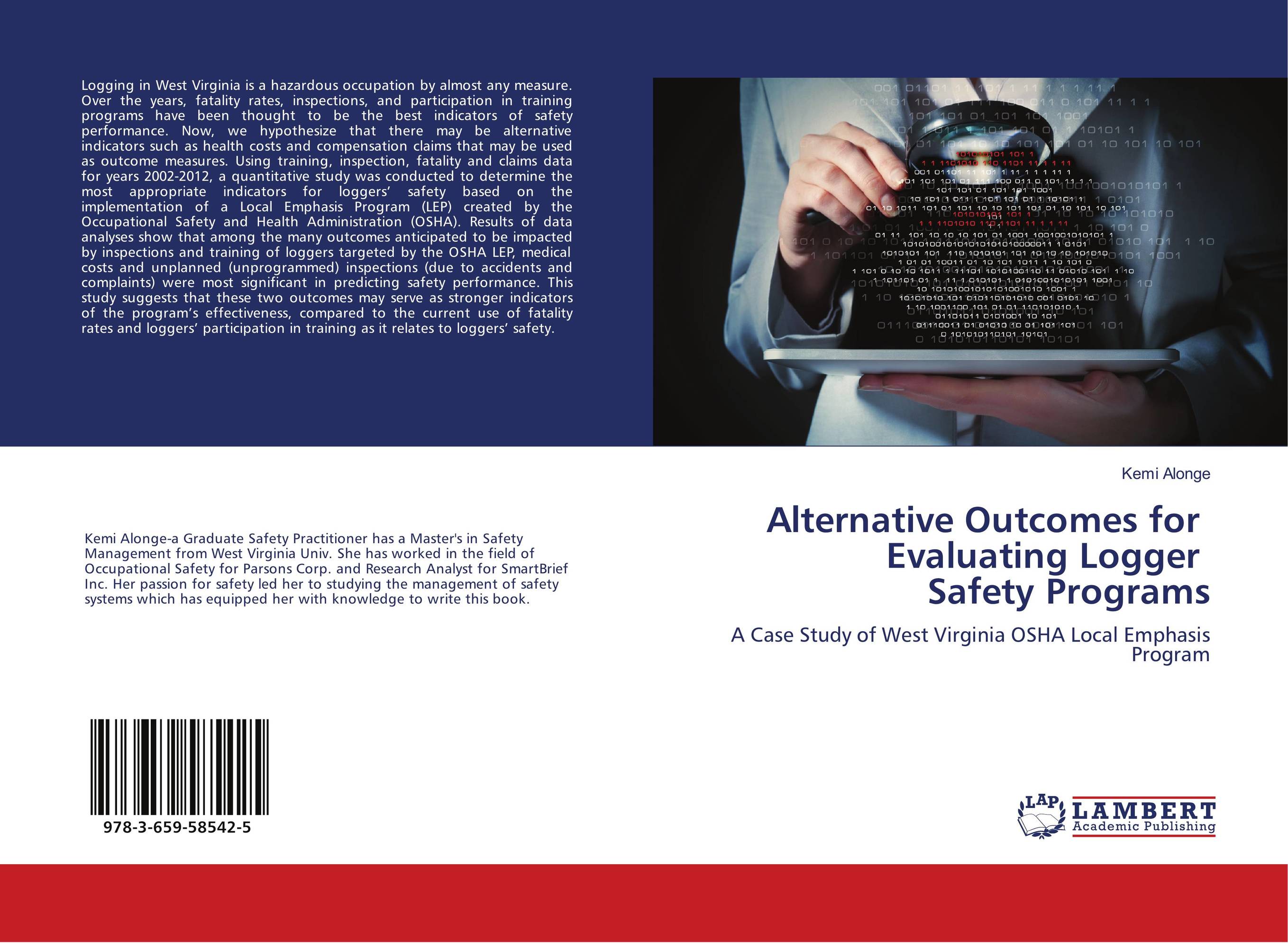| Поиск по каталогу |
|
(строгое соответствие)
|
- Профессиональная
- Научно-популярная
- Художественная
- Публицистика
- Детская
- Искусство
- Хобби, семья, дом
- Спорт
- Путеводители
- Блокноты, тетради, открытки
Alternative Outcomes for Evaluating Logger Safety Programs. A Case Study of West Virginia OSHA Local Emphasis Program

В наличии
| Местонахождение: Алматы | Состояние экземпляра: новый |

Бумажная
версия
версия
Автор: Kemi Alonge
ISBN: 9783659585425
Год издания: 2018
Формат книги: 60×90/16 (145×215 мм)
Количество страниц: 68
Издательство: LAP LAMBERT Academic Publishing
Цена: 23493 тг
Положить в корзину
| Способы доставки в город Алматы * комплектация (срок до отгрузки) не более 2 рабочих дней |
| Самовывоз из города Алматы (пункты самовывоза партнёра CDEK) |
| Курьерская доставка CDEK из города Москва |
| Доставка Почтой России из города Москва |
Аннотация: Logging in West Virginia is a hazardous occupation by almost any measure. Over the years, fatality rates, inspections, and participation in training programs have been thought to be the best indicators of safety performance. Now, we hypothesize that there may be alternative indicators such as health costs and compensation claims that may be used as outcome measures. Using training, inspection, fatality and claims data for years 2002-2012, a quantitative study was conducted to determine the most appropriate indicators for loggers’ safety based on the implementation of a Local Emphasis Program (LEP) created by the Occupational Safety and Health Administration (OSHA). Results of data analyses show that among the many outcomes anticipated to be impacted by inspections and training of loggers targeted by the OSHA LEP, medical costs and unplanned (unprogrammed) inspections (due to accidents and complaints) were most significant in predicting safety performance. This study suggests that these two outcomes may serve as stronger indicators of the program’s effectiveness, compared to the current use of fatality rates and loggers’ participation in training as it relates to loggers’ safety.
Ключевые слова: evaluation, logging, OSHA, occupational safety, Local Emphasis Programs



